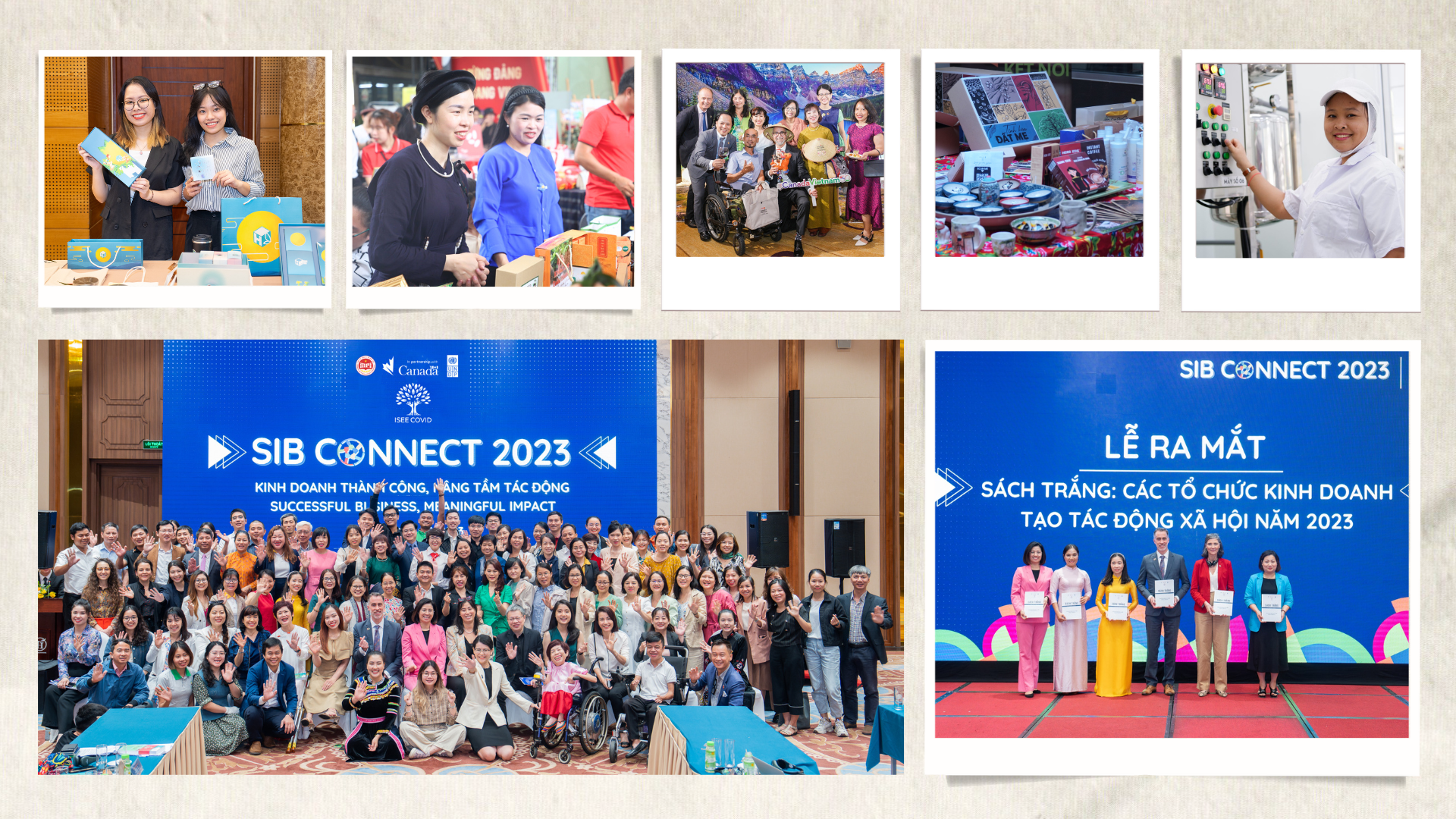SIBs in Việt Nam: challenges, opportunities, and the way forward
August 31, 2024

As published in Viet Nam News on 31 August, 2024
Social Impact Businesses (SIBs) are enterprises that prioritise a triple bottom line, balancing profits with social and environmental responsibilities. With approximately 26,000 SIBs in Việt Nam, the sector plays a crucial role in providing jobs and essential services to vulnerable communities.
Ramla Khalidi, UNDP Resident Representative in Việt Nam, spoke with Việt Nam News reporter Lê Việt Dũng about the evolving SIB sector and its role in addressing social and environmental challenges in the country.
Inner Sanctum: How do you view the SIB ecosystem in Việt Nam? What impact have SIBs had on addressing social and environmental issues?
In recent years, Việt Nam's SIB ecosystem has evolved significantly. What began as a mostly informal group of businesses has now gained formal recognition from policymakers and become an integral part of the business landscape.
By prioritising economic profitability alongside positive social and environmental impacts, SIBs play a vital role in economic empowerment, advocating for the rights of vulnerable groups, and tackling environmental challenges. Through UNDP’s flagship ISEE-COVID project, funded by Canada, we've seen an increasing number of enterprises and cooperatives identifying as SIBs. Thanks to a nurturing ecosystem, these SIBs have strengthened their capabilities, developed innovative business models, and expanded their domestic and international markets while maintaining positive impacts.
This ecosystem includes various support organisations offering training, incubation, and networking opportunities. Some traditional business support organisations have also introduced programmes specifically for SIBs. Additionally, there have been efforts to connect Việt Nam's SIBs with regional and international counterparts.
On the policy front, we are honoured to work with the Agency for Enterprise Development under the Ministry of Planning and Investment to facilitate formal recognition for SIBs, helping them gain easier access to support schemes.
Inner Sanctum: What kind of impact have SIBs had on communities in Việt Nam?
I've had the privilege of meeting many SIBs through various projects and support activities, each with its own inspiring story. Seeing a wide range of ideas across sectors like agriculture, tourism, education, and healthcare is encouraging. These range from high-quality Vietnamese products and handicrafts to innovative solutions like using larvae to turn food waste into organic fertiliser or developing new rice cultivation methods that reduce costs and greenhouse gas emissions.
Many SIBs integrate gender and climate considerations, create jobs for vulnerable groups, including persons with disabilities, and promote inclusive education. Many focus on improving healthcare for underserved populations and applying technology for a cleaner environment. Notably, over two-thirds of the SIBs supported by the ISEE-COVID project are women-led enterprises, which highlights their substantial impact on women beneficiaries.
Inner Sanctum: What criteria must a business meet to qualify for the SIB SIGNATURE certification?
SIB SIGNATURE is an initiative designed to foster connections and collaboration among SIBs, encouraging them to create new products and services. This initiative helps expand the domestic market through cross-selling and the development of new products ahead of the holiday season.
Following capacity-building and networking activities, the 10 SIBs with the most impactful products and services, strong commitment, and highest cooperative efforts received project support to create two high-quality joint products: the "SIB Signature Gift Sets" and the "SIB Việt Nam’s Identity" tour. These gift sets feature high-quality, organic products like tea, cinnamon, chocolate, natural silk, and eco-friendly cleaning solutions. The production of these items actively involves persons with disabilities, ethnic minorities, and women. We aim to sustain and expand such initiatives in Việt Nam.
Inner Sanctum: What are the main opportunities and challenges facing SIBs in Việt Nam?
While SIBs have made great strides, they still face significant challenges in Việt Nam, including limited access to financial resources, difficulties entering new markets, and the need for tailored information on business management and financial access. Additionally, many customers or markets do not fully understand the SIB model and its impact.
Since 2021, the ISEE-COVID project, implemented by UNDP and MPI with support from Global Affairs Canada, has aimed to address these challenges through customised programmes for SIBs at various stages of development—early stage, growth, and expansion.
Early-stage SIBs, for example, received on-demand training on financial management, legal matters, leadership skills, and business model development. Meanwhile, 40 growth-stage SIBs successfully expanded their markets and signed business contracts with larger enterprises, with 13 exporting to international markets such as the US, EU, and UK.
To date, the project has supported over 400 SIBs and created nearly 15,000 jobs, primarily for women and vulnerable groups, including ethnic minorities and people with disabilities. In 2024, we plan to connect SIBs with leading enterprises in Việt Nam to foster win-win partnerships and encourage sustainable growth.
Inner Sanctum: What advice would you give to someone interested in starting an SIB in Việt Nam? What skills are essential for success?
First, I want to dispel the myth that SIBs are just micro or small businesses. Some of the most successful SIBs are large and well-established. SIBs represent a sustainable business model that attracts both customers and investors. Beyond entrepreneurial spirit, impact entrepreneurs are courageous pioneers tackling social and environmental challenges while creating high-quality products and services. I encourage aspiring entrepreneurs to follow both their hearts and minds. UNDP and other stakeholders will continue to support them.
Inner Sanctum: What policy changes would you recommend to the government and related agencies to support SIBs?
Thanks to the Agency for Enterprise Development under the Ministry of Planning and Investment, Việt Nam’s first-ever White Book on SIBs has been launched. While there are policies and programmes in place to support SIBs, they are spread across different laws and ministries, creating a gap between policy and implementation. We hope more SIBs will be able to access and benefit from state programmes.
UNDP remains committed to supporting the Vietnamese government’s efforts to foster Social Impact Businesses, ensuring sustainable economic growth while contributing to the achievement of the Sustainable Development Goals. VNS

 Locations
Locations

